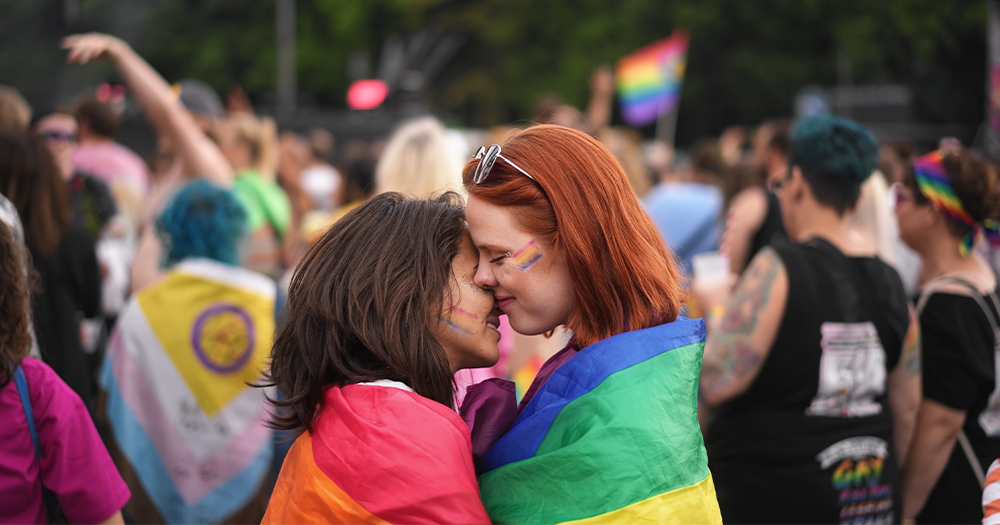On Thursday, October 3, the Parliamentary Assembly of the Council of Europe (PACE) adopted the first-ever resolution to explicitly address the rights of lesbian, bisexual and queer women. The move marks the first time an international body has legally recognised the unique and specific issues of women who also face discrimination and violence based on their sexual orientation.
While the Council of Europe cannot make laws, it can enforce international agreements made by its 46 member states and has the goal of upholding human rights, democracy and the rule of law. Its most famous achievement is the European Convention of Human Rights, which established the European Court of Human Rights, where David Norris famously brought the case that led to the decriminalisation of homosexuality in Ireland.
By adopting the Preventing and combating violence and discrimination against lesbian, bisexual and queer women in Europe resolution, the Council of Europe has called for a series of measures to protect this community.
“LBQ women experience stigma and discrimination based on gender, sexual orientation and their specific identity as women who do not conform to societal expectations, stereotypical gender-related roles or so-called standards of femininity,” the resolution states.
The document calls on the member states to “adopt, finance and implement national strategies to protect the rights of LGBTI persons, prepared in co-operation with organisations representing LGBTI persons and including specific measures for LBQ women”.
Moreover, it asks states to “recognise the specific features related to access for LBQ women to their rights and ensure that laws on women’s rights take these into account” and “support non-governmental organisations working to protect the rights of LBQ women in all their diversity and to consult them when elaborating policies regarding LBQ women.”
To address the issue of LBQ victims of violence and discrimination, the resolution asks members to ratify the Convention on Preventing and Combating Violence against Women and Domestic Violence (also called the Istanbul Convention), in case they haven’t already done so.
In addition, it calls on states to “train police officers, social workers and judicial authorities” on the proper reception of LBQ women who have been victims of violence or discrimination and to “finance specific programmes to support LBQ women, particularly emergency shelters”.
The resolution was drafted on the basis of a report authored by Béatrice Fresko-Rolfo, who is General LGBTI Rapporteur at PACE. Fresko-Rolfo stated, “This report aims to make the voices of LBQ women heard, to contribute to the visibility of their struggle for equal rights and to ensure that the difficulties they face are dealt with effectively.
“It has an intersectional and inclusive approach because this is how rights can be effectively protected. We are in 2024, and we should be able to live together in all our diversities, to move forward and to ensure that everyone can form a family if they so wish.”
Commenting on the report, Member of PACE Kate Osborne said: “I welcome the report calling on member states to ensure LBQ women have the rights and protections they need and deserve. I particularly welcome the intersectional approach taken, and we must not be distracted by the fabricated conflict between trans women and lesbians, which only serves to divide and undermine the fight for equality within our communities.”
© 2024 GCN (Gay Community News). All rights reserved.
Support GCN
GCN is a free, vital resource for Ireland’s LGBTQ+ community since 1988.
GCN is a trading name of National LGBT Federation CLG, a registered charity - Charity Number: 20034580.
GCN relies on the generous support of the community and allies to sustain the crucial work that we do. Producing GCN is costly, and, in an industry which has been hugely impacted by rising costs, we need your support to help sustain and grow this vital resource.
Supporting GCN for as little as €1.99 per month will help us continue our work as Ireland’s free, independent LGBTQ+ media.
